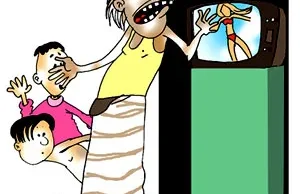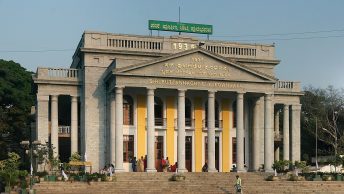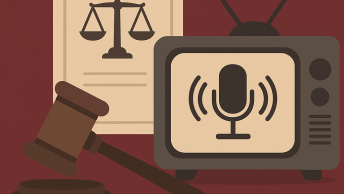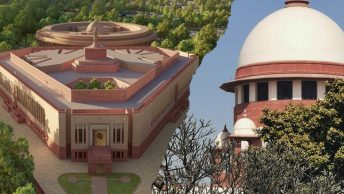Recently, under Section 144 of the Code of Criminal Procedure, (CrPC) the Rajkot Police criminalized use of the PUBG mobile application. Soon, Ahmedabad and Sabarkantha followed suit. To justify the ban, the notification said that the game had a tendency to “affect the behavior, manners, speech and development of the youth and children.” The power to ban PUBG was sourced from section 37(3) of the Gujarat Police Act, 1951 (The Act) read with Section 188 of the Indian Penal Code (IPC) which allows the State to take necessary steps to maintain public order. Although, the ban has been lifted now, I argue that this ban was a frivolous attempt by the State to expand its inherent powers of restricting free speech to previously unchartered territories and that by prioritizing the restrictions above the right, the State acted in a manner which is constitutionally impermissible.
Knowing the Law: Section 37(3) of the Act & The violation of Constitutional Provisions
Section 37(3) of The Act may only be invoked if the competent authority feels that the prohibition is for the preservation of public order. The threshold for determining a violation of public order was laid down in the case of Shreya Singhal vs Union of India, (Shreya Singhal) and the narrative which governed the setting of such a threshold was that a violation a public order would necessarily entail a threat to public peace and tranquility. Hence, the threshold is particularly high. The court further went on to say that mere annoyance could not be elevated to the threshold of disrupting public order. Here, even if we assume that the use of PUBG did lead to the causing of annoyance, there was no empirical data, or statistics which could lead the authorities to conclude that the game violated the Shreya Singhal threshold. This made the promulgation of the notification manifestly arbitrary, thus violating Article 14 of the Constitution of India. The test for manifest arbitrariness was laid down in the Indian Express Newspapers case, where it was said that a legislation would be considered manifestly arbitrary if it was enacted in an unreasonable manner, or without a determining principle or at will alone. This was also mentioned in the Shyara Bano case, where Justice Nariman reiterated the settled law that manifest arbitrariness was a ground to invalidate a legislation. The criminalization of PUBG also violated Article 19(1) (a) of the Constitution of India. This is because it attempted to curb the freedom of speech and expression of the individuals, without any reasonable restrictions, as the tendency to “affect the behavior, manners, speech and development of the youth and children” cannot be said to be a reasonable restriction under Article 19(2) and the Shreya Singhal threshold. The game has provisions for online chatrooms, where the users are given the opportunity to converse with each other over the internet, and by banning the game, they are being deprived of their right to free speech guaranteed under Article 19(1)(a). Furthermore, the access to recreation, and the opportunity to assemble peacefully and form associations is an essential tenet of Part III of our Constitution, under Article 19(1)(c) was also being threatened.
The Blue Whale Precedent
Courts require the State to establish with empirical or expert evidence that a particular activity is inherently averse to public order. They cannot seek refuge of suppositions in curtailing free speech. Here, the approach of the Madras High Court in the Blue Whale case is instructive. Instead of taking the State’s justification as a gospel truth, it impleaded the State Mental Health Authority, Chennai and the Director of SNEHA Suicide Prevention Centre, Chennai as parties. Furthermore, there was an unprecedented rise in the number of google searches for the Blue Whale game, which also incidentally or rather consequently coincided with increase in the number of suicide attempts in cities where such searches were made. It was after such data and analysis that the game was banned in various parts of the country under §188 IPC. This was because the nature of the game was as such, that it essentially involved elements of self-harm and thus, had assumed a life threatening character. However, in the case of PUBG, there exists no empirical evidence that the nature of the game, may have the tendency to actually harm its stakeholders. On the contrary, independent studies have found no reasonable nexus between violent video games and real life aggression in teenagers. Thus, in the absence of any empirical data, or evidence, this ban, was a frivolous attempt to curb the hard-1won rights of speech and expression by individuals.
The Concluding Aspect: Should Deontological Approach to Free Speech be considered Over the Consequentialist Approach?
The government’s defence to the ban was that if the consequences, or effects of such speech and expression are not desirable, they may be curtailed. This is very often invoked by the State while imposing its morality on the public at large. An example is the case where pornography was banned in India. However, even in cases where the alleged consequences which follow a completely legal act, are proved to be harmful, it is not permissible for the government to ban it altogether as this would be an infringement of the right to free speech and expression. Justice H.L Dattu’s observation in the case of Kamlesh Vaswani vs Union of India & Ors, essentially outlines the same proposition, where, while refusing to pass an interim order to block porn websites in India he said that enforcing such a ban would necessarily entail the violation of one’s privacy under Article 21 of The Constitution.
While condemning the ban on PUBG, I suggest that such games or expressions should be viewed through the prism and in pursuance of a deontological approach to free speech. The deontological approach is based on the understanding that the right to speech in and of itself deserves to be a fundamental right and that protection is not conditional on whether the speech, based of its qualitative value deserves protection.
The protection accorded to commercial speech under Indian Jurisprudence essentially adumbrates this approach. For instance, in the case of Tata Press vs MTNL the Supreme Court held that commercial speech, including misleading advertisements were protected under Article 19(1)(a) of the Constitution. The court, inter-alia relied on Virginia State Board Pharmacy case where the United States Supreme Court, ruled in favour of “interests in individual free speech” over “public welfare determinations embodied in the legislative enactments”, consequently bringing commercial speech within the ambit of the First Amendment, which had a lower threshold of protection than what was accorded to speech dedicated to the propagation of ideas.
However, the deontological approach, in no way suggests that freedom of speech and expression should be absolute, and anything which is desirable but is against public order, health or morality should be legalised, thus rendering the reasonable restrictions, i.e., Article 19(2) of the Constitution redundant. This is amply illustrated by the fact, that, in the case of Tata Press vs MTNL, the Supreme Court, although held that commercial speech, which may include misleading advertisements, is protected under Article 19(1)(a) of the Constitution, it however, would be subjected to reasonable restrictions under Article 19(2) of the Constitution.
It is against the backdrop of this ruling that we suggest a harmonious interpretation of the right enshrined in Article 19(1)(a) along with the deontological approach to free speech. The methodology which could be followed, in order to implement this harmonious interpretation, is the enactment of a non-restrictive framework which would specifically encompass, inter-alia, games such as PUBG, the alleged injurious consequences of which have not been empirically proven and the continuance of which is generally desirable. The test which could be followed in determining as to whether a particular application among other things, falls within the contours of this framework, could be an Actual Harm Test. This test could essentially use empirical and statistical data to determine whether an application can be incorporated within the framework suggested or not. The statistical data could, inter-alia, include, police complaints, medical reports and the magnitude of actual harm caused by such applications. If the statistical data points out that actual harm is being caused by the use of such an application, the non-restrictive framework would not apply. However, if statistical data points to the contrary, the application would be covered within the contours of the non-restrictive framework. I advocate the existence of such a framework, to ensure that certain expressions of the right to free speech, which evince the existence of individual freedoms in this country, are not deconstructed by arbitrary state action. This non-restrictive framework would ensure that while the freedom of speech and expression is constitutionally curtailed with reasonable restrictions, there are certain acts or aspects which fall under the deontological theory of the right to free speech, and therefore are exempted from the ambit of interference by the State. The framework could consequently ensure that the absolutist and maximalist tendencies of the State are nipped in the bud and the true essence of the free speech is preserved for the times to come.
The author would like to thank Tejas Popat for his invaluable comments on the previous drafts of this article.





